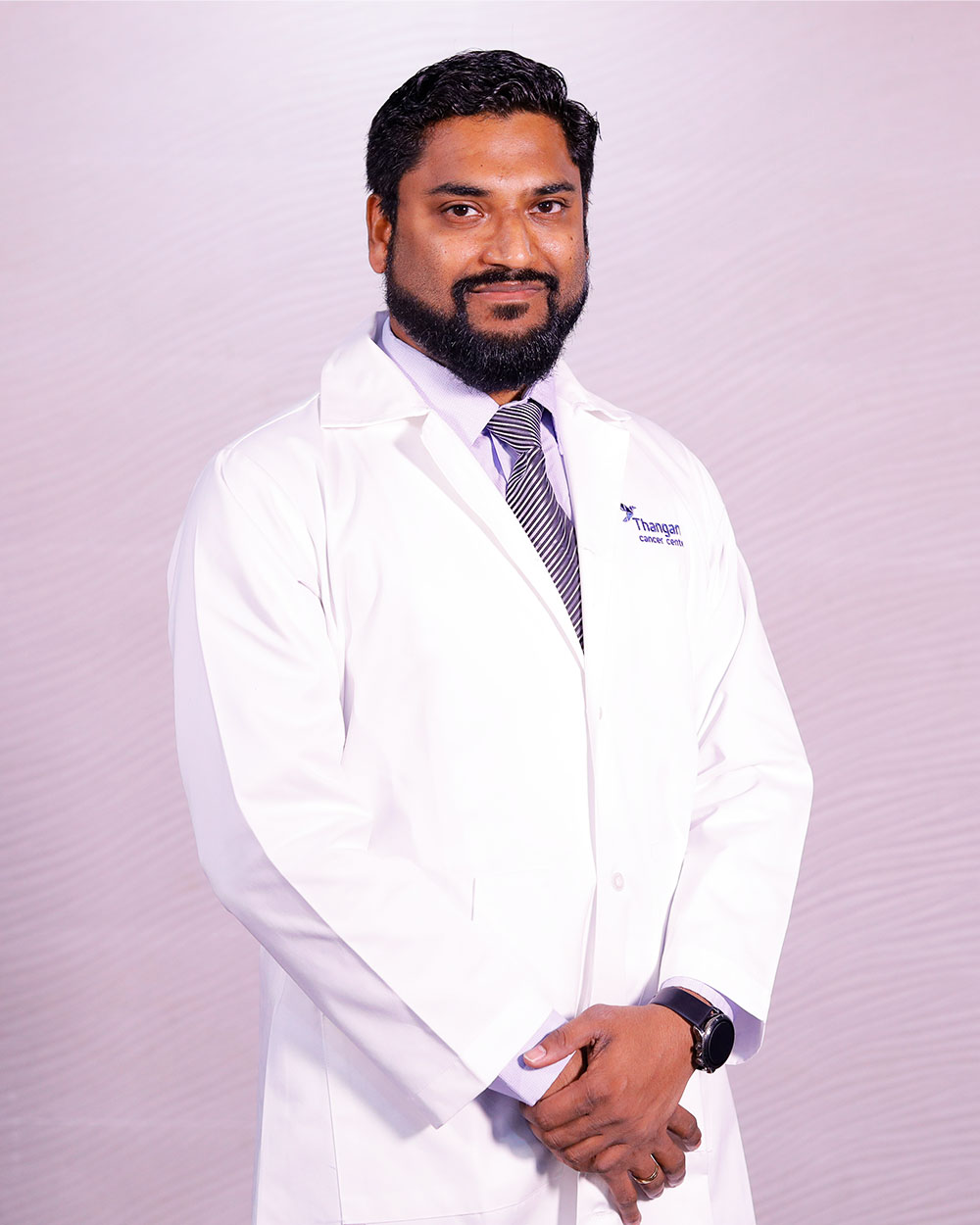Oral Cancer
Oral cancer is one of the most common malignancies in the world. Oral cancer or mouth cancer arises in the tissues of any part of the mouth when cells develop mutations in their DNA, making the cells grow and divide abnormally, leading to the formation of tumours.
With time the tumour may spread inside the mouth and the other areas of the head and neck.
Symptoms of Oral Cancer:
Oral cancer includes cancers originating in any of the following parts of the mouth or the oral cavity:
Types of Oral Cancer
Based on the cell of origin, oral cancer can be divided into:
- Carcinoma
- Lymphoma
- Mucosal melanoma
- Sarcomas

Diagnostics Facilities
Advanced Cancer Diagnostics
Advanced Cancer Treatment
General Diagnostic Facilities
What are premalignant lesions? How to identify them?
A precancerous lesion/Premalignant condition is characterized by a significantly increased risk of cancer. Many non-cancerous tumours and growths can grow in the mouth if not treated on time, they may become cancerous over a period of time.
The most common precancerous lesions are
- Oral Leukoplakia
- Oral Erythroplakia
- Oral submucous fibrosis[OSMF]
- Oral Lichen planus
Leukoplakia: It is the most common premalignant disorder characterized by white patches with higher risk and is seen 6 times more among tobacco users than non-tobacco users.
Erythroplakia: It is fiery red in colour and clinical appearance is characterized by a flat or slightly raised erythematous change of the mucosa without a patch lesion. These lesions usually bleed when scraped and are typically found on the buccal mucosa, floor of the mouth and soft palate.
Oral submucous fibrosis: This is a precancerous condition that causes inflammation and progressive fibrosis of the submucosal tissues making them rigid and limiting jaw mobility.
Oral Lichen planus: It appears as white lacy patches with red swollen tissues or open sores and affects mucous membranes inside the mouth, causing a burning sensation, pain or discomfort.
When to see the doctor?
Oral cancer symptoms can appear in multiple forms, varying from person to person, depending on the location and would be best to consult our specialists to rule out any possibilities of cancer as a preventive measure if you are experiencing a combination of any of these symptoms.
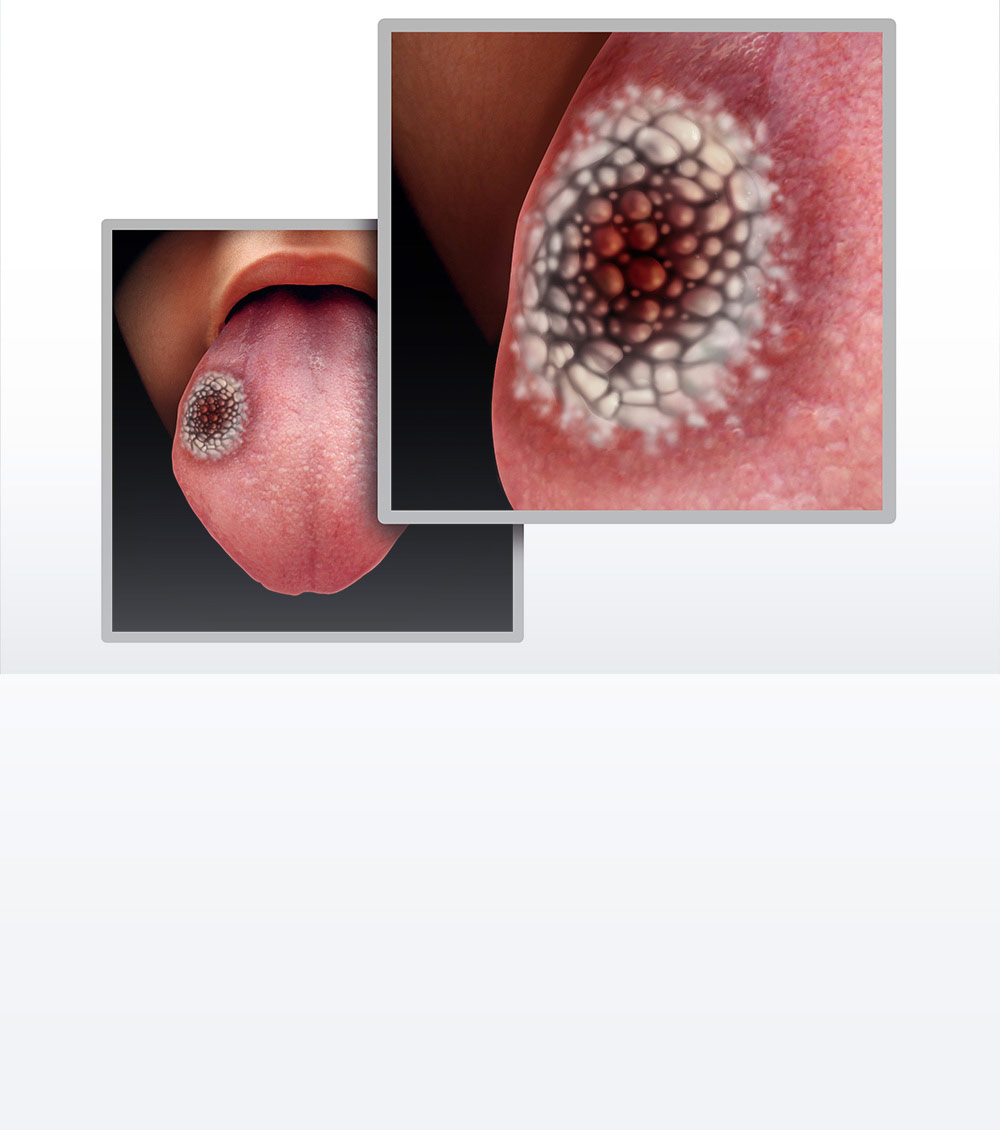
What are the risk factors of Oral Cancer?
The factors that increase the risk of mouth cancers are as follows
What are the stages of Oral Cancer?
The cancer staging process is crucial to determine the treatment approaches and is done by analyzing the size and the spread of the disease.
The Oral cancer is staged as follows to make treatment decisions:
What can I do to Prevent Oral Cancer?
Most of the oral cancers are preventable. Some measures that you can take to prevent these cancers are:
How is Oral Cancer treated?
The treatment choice depends upon the type of oral cancer, test results and the stage of oral cancer. The objective of treatment is to cure, control or help ease the impact caused by cancer.
Oral cancer can be treated by:
How is Oral Cancer diagnosed?
Oral cancer is often diagnosed during routine dental exams/oral screening examinations. If the symptoms align with those of oral cancer our specialist gains insights into your entire health history, symptoms, risk factors, family history of disease and conducts a thorough physical examination and recommends screening procedures.
Physical examination: Our cancer specialists look for lumps or abnormal tissue changes, any sore or discoloured tissues in your lips, oral cavity, face, head and neck.
Investigations:
Biopsy: Biopsy is the only definitive way to confirm cancer. Tissue samples are collected from the suspected area using a small scalpel/surgical blade and inspected for the presence of cancer cells in our pathology labs with a turnaround time of 3 to 5 days for the test results.
After the diagnosis of oral cancer, additional tests are taken to determine the cancer staging and your overall health.
The following screenings and tests are performed to check inside your mouth, throat and neck regions.
- Video-directed laryngoscopy: A well-lighted, small and flexible camera is inserted through your throat by our cancer specialist to look for abnormal indications.
- Imaging: It is an essential tool in the management of oral cancer with the protocol involving taking images of the primary site and eliminating the suspicion of the spread of cancer cells to distant organs using:
- CT scan of Head & Neck [CECT]: This procedure is affordable, quick, non-invasive and easy to perform and involves taking cross-sectional images of your body on various planes. It provides a clear picture of the appearance of tumours, their extension to the lymph nodes, surrounding tissues and bones.
- Magnetic Resonance Imaging[MRI]: The advantage of the MRI procedure is that it emits less radiation than a CT scan and provides enhanced imaging of soft tissues. The disadvantage is that it cannot be performed on individuals with pacemakers, prosthetic cochlear implants or other metal implants.
- Positron Emission Tomography Scan[PET/CT]: PET scan is a specialized imaging technique which uses short-lived radioactive drugs to produce 3D coloured images. It measures metabolic activity and the function of tissues. It helps to determine the growth and type of the tumour. The radioactive drug accumulates in certain tissues, emitting positrons, which are detected and examined to provide the exact disease status.
- It allows cancer specialists to thoroughly examine the whole body, including the primary area where cancer cells originated, Lymph node involvement, and distant metastases. Thangam Cancer Centre Namakkal has a dedicated CT/ PET-CT machine which provides a one-stop solution for all imaging/staging procedures.
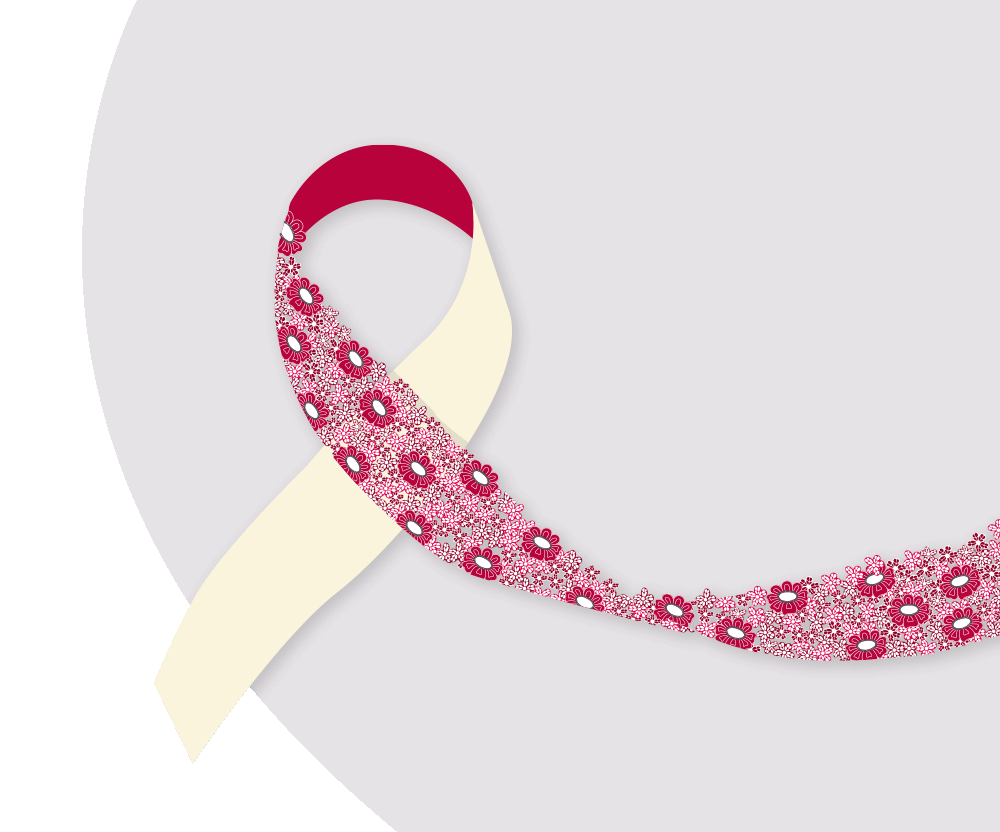
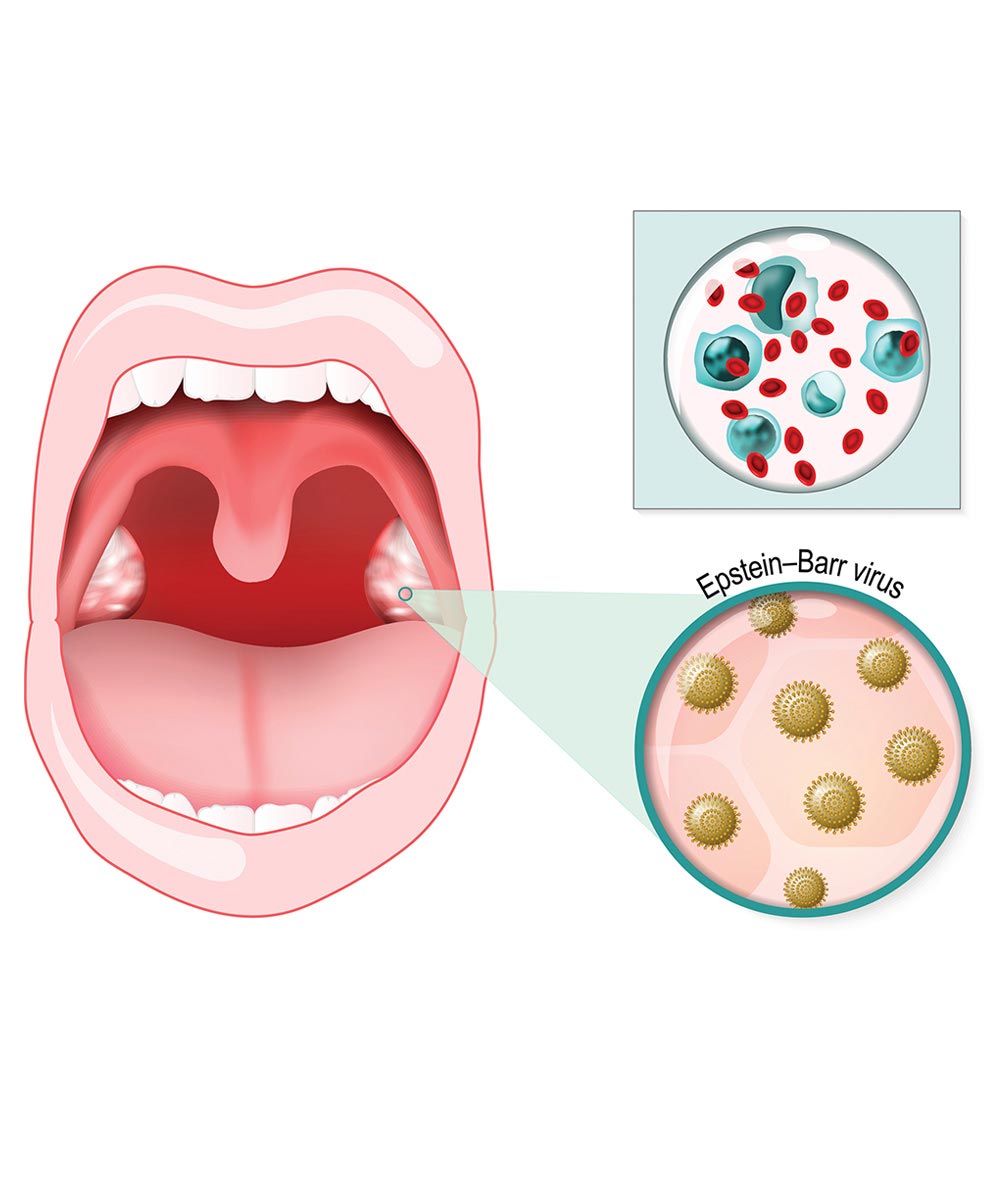
What are the treatment options available?
Treatment for oral cancer is either in local form or systemic wherein the local treatment removes, eliminates or controls cancer cells in one area. The systemic treatment eliminates/controls cancer cells that may have spread to other parts of your body.
Surgery and radiation comprise the local treatments typically used in oral cancer. Depending upon the cancer staging, your doctor might recommend a single treatment approach or combination treatments.
Investigations:
Many people feel depressed and anxious when dealing with cancer.Cancer treatments can be taxing on the mind and body.
Discuss your concerns with your family and doctors.
Doctors

Dr. Deepti Mishra

Dr. Aruna Prabhu
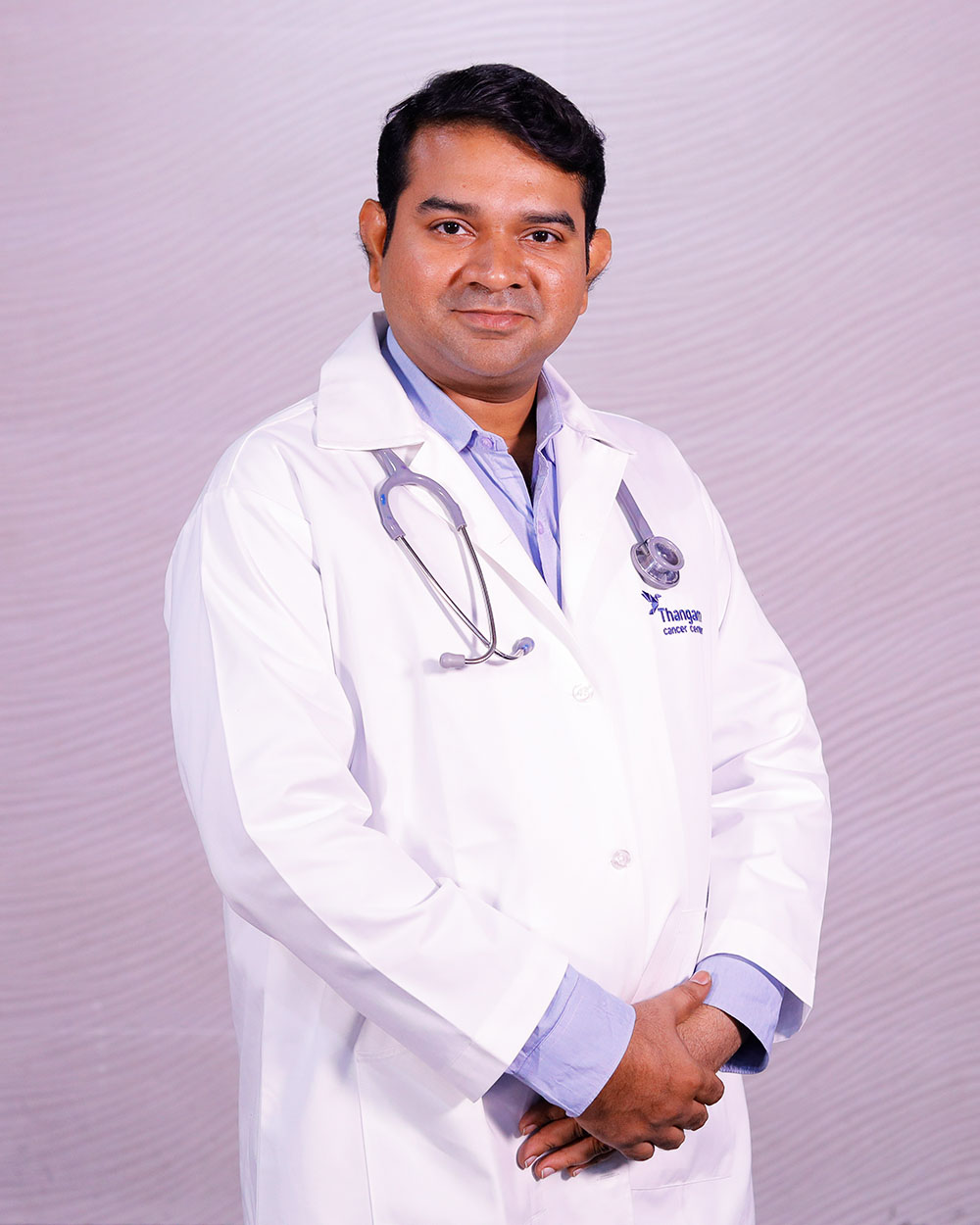
Dr. Bhavesh Poladia

Dr. Sachin Chavre
